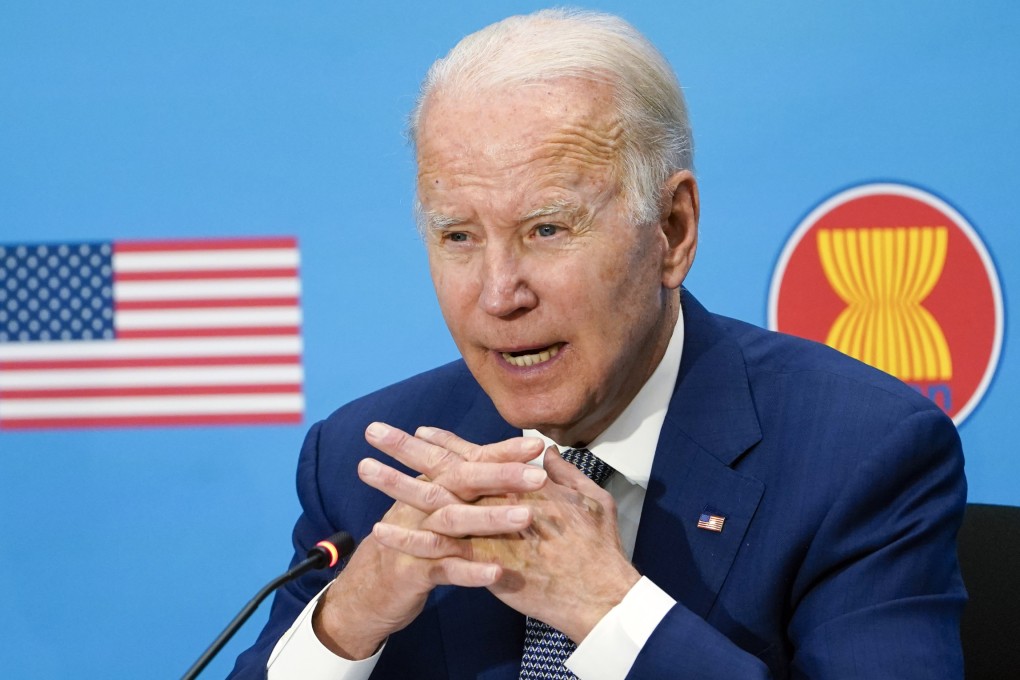Biden eyes boosting US-Asean ties, countering China’s influence in first post-pandemic ‘summit season’
- Joe Biden will travel to Cambodia this weekend to meet Asean leaders in an effort to convey that Washington remains committed to the region
- Last November, Beijing committed US$1.5 billion in developmental help to Asean – 10 times more than a recent US infrastructure pledge to the region

While Biden’s Democratic Party may be smarting from its potential loss of control of the House of Representatives to the Republicans in Tuesday’s midterm elections, the president is likely to emphasise that his administration’s stance on boosting ties with the region – amid China’s rising influence – is here to stay, observers added.
On Wednesday, the race for control of both houses of the US Congress remained tight, though the media projected the Republicans would gain control of the 435-seat House of Representatives.
While Biden has previously engaged Asean leaders, this is the first time he is attending the region’s so-called year-end ‘summit season’ in person since taking office in 2021.
Joanne Lin Weiling, Asean Studies Centre co-coordinator at the Singapore-based ISEAS-Yusof Ishak Institute said a new Asean-US Comprehensive Strategic Partnership (CSP) was expected to be announced during the meeting.
